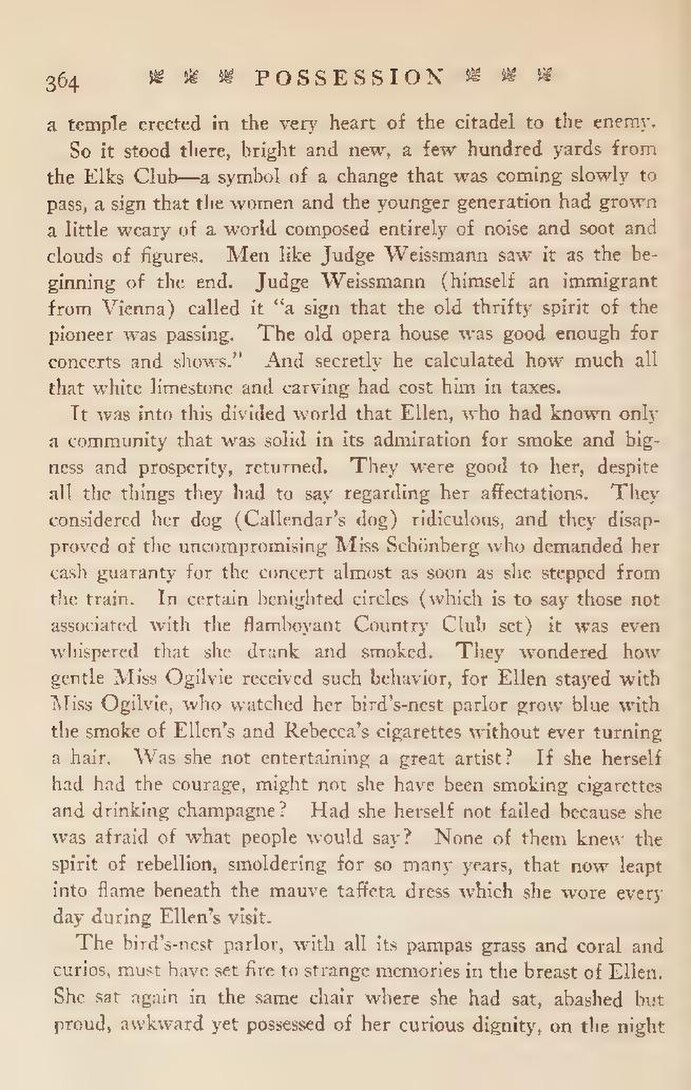a temple erected in the very heart of the citadel to the enemy.
So it stood there, bright and new, a few hundred yards from the Elks Club—a symbol of a change that was coming slowly to pass, a sign that the women and the younger generation had grown a little weary of a world composed entirely of noise and soot and clouds of figures. Men like Judge Weissmann saw it as the beginning of the end. Judge Weissmann (himself an immigrant from Vienna) called it "a sign that the old thrifty spirit of the pioneer was passing. The old opera house was good enough for concerts and shows." And secretly he calculated how much all that white limestone and carving had cost him in taxes.
It was into this divided world that Ellen, who had known only a community that was solid in its admiration for smoke and bigness and prosperity, returned. They were good to her, despite all the things they had to say regarding her affectations. They considered her dog (Callendar's dog) ridiculous, and they disapproved of the uncompromising Miss Schönberg who demanded her cash guaranty for the concert almost as soon as she stepped from the train. In certain benighted circles (which is to say those not associated with the flamboyant Country Club set) it was even whispered that she drank and smoked. They wondered how gentle Miss Ogilvie received such behavior, for Ellen stayed with Miss Ogilvie, who watched her bird's-nest parlor grow blue with the smoke of Ellen's and Rebecca's cigarettes without ever turning a hair. Was she not entertaining a great artist? If she herself had had the courage, might not she have been smoking cigarettes and drinking champagne? Had she herself not failed because she was afraid of what people would say? None of them knew the spirit of rebellion, smoldering for so many years, that now leapt into flame beneath the mauve taffeta dress which she wore every day during Ellen's visit.
The bird's-nest parlor, with all its pampas grass and coral and curios, must have set fire to strange memories in the breast of Ellen. She sat again in the same chair where she had sat, abashed but proud, awkward yet possessed of her curious dignity, on the night
